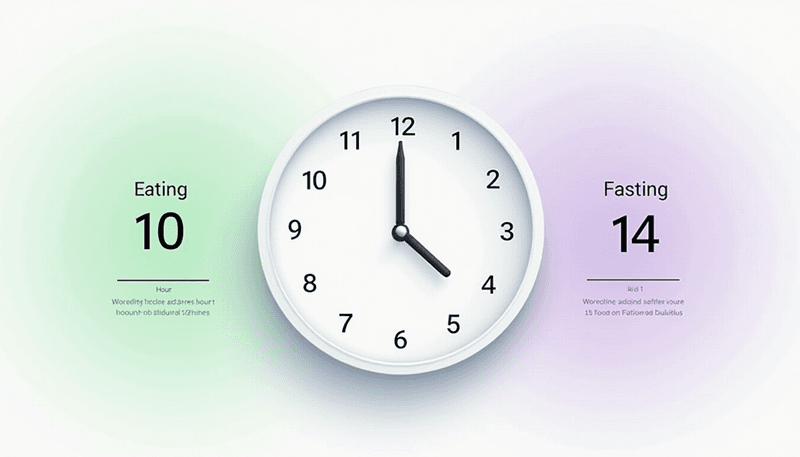New Hope for PCOS Weight Management

Living with Polycystic Ovary Syndrome (PCOS) often feels like navigating a maze of symptoms, treatments, and lifestyle changes. As someone who has battled PCOS for over a decade, I understand the frustration of trying various approaches to manage this complex condition. Today, I'm excited to share promising research that could revolutionize how we approach PCOS treatment through the combination of time-restricted eating and gut health support.
The Power of Timing Your Meals
Think of your body as a sophisticated factory that operates on a precise schedule. Just as a factory performs different tasks during specific shifts, your body has optimal times for processing food, burning fat, and regulating hormones. Research shows that limiting your eating window to 10 hours (for example, between 8 AM and 6 PM) can help reset your body's natural rhythm.
How often do you find yourself eating late at night, and how does it affect your sleep and energy levels the next day?
This approach, called Time-Restricted Feeding (TRF), doesn't require counting calories or eliminating food groups. Instead, it focuses on when you eat rather than what you eat. For women with PCOS, this timing adjustment can help:
- Reduce insulin resistance
- Support healthy hormone balance
- Improve sleep quality
- Aid in weight management
The Gut-PCOS Connection
Your gut is like a garden - the right balance of beneficial bacteria helps everything flourish. Women with PCOS often have an imbalanced gut microbiome, which can worsen symptoms and make weight management more challenging.
The research suggests that specific probiotic strains, particularly Lactobacillus rhamnosus and Lactobacillus reuteri, may help:
- Improve glucose tolerance
- Reduce inflammation
- Support hormone balance
- Enhance weight loss efforts
Have you noticed any connection between your digestive health and PCOS symptoms?
Combining Strategies for Better Results
When you combine time-restricted eating with probiotic support, you're essentially creating a two-pronged approach to managing PCOS. Think of it like training for a marathon - you need both proper timing (when to run) and the right support system (good shoes, nutrition) to succeed.
Practical tips for implementation:
- Start gradually by reducing your eating window by 1 hour each week
- Choose a probiotic supplement containing the studied strains
- Keep a consistent eating schedule, even on weekends
- Stay hydrated during fasting periods with water, tea, or black coffee
- Monitor your energy levels and symptoms
The beauty of this approach lies in its simplicity and flexibility. You don't need special equipment or expensive supplements - just a clock and a basic probiotic supplement. The key is consistency and listening to your body's responses.
What small change could you implement this week to start aligning your eating schedule with your body's natural rhythm?
As we conclude, remember that managing PCOS is a journey, not a sprint. These research-backed strategies offer a promising path forward, but they work best when implemented gradually and consistently. Start with one small change - perhaps setting a firm "kitchen closed" time each evening - and build from there.
I'd love to hear about your experiences with timing-based approaches to managing PCOS. Share your story in the comments below, and let's support each other in this journey toward better health.
Always consult with your healthcare provider before starting any new treatment approach, especially if you're taking medications for PCOS or other conditions.

Olivia Rose Chen-Martinez
Olivia Rose Chen-Martinez is a seasoned health and wellness writer with a focus on women’s health issues, including PCOS, perimenopause, and holistic wellness. With a background in Journalism and Public Health from UC Berkeley, Olivia draws on over 15 years of writing experience to deliver empathetic, research-backed insights. Her work blends personal anecdotes and actionable advice, resonating with readers seeking accessible and trustworthy information. Based in Austin, Texas, Olivia is also a certified yoga instructor and a dedicated advocate for balanced, integrative approaches to women’s health.






